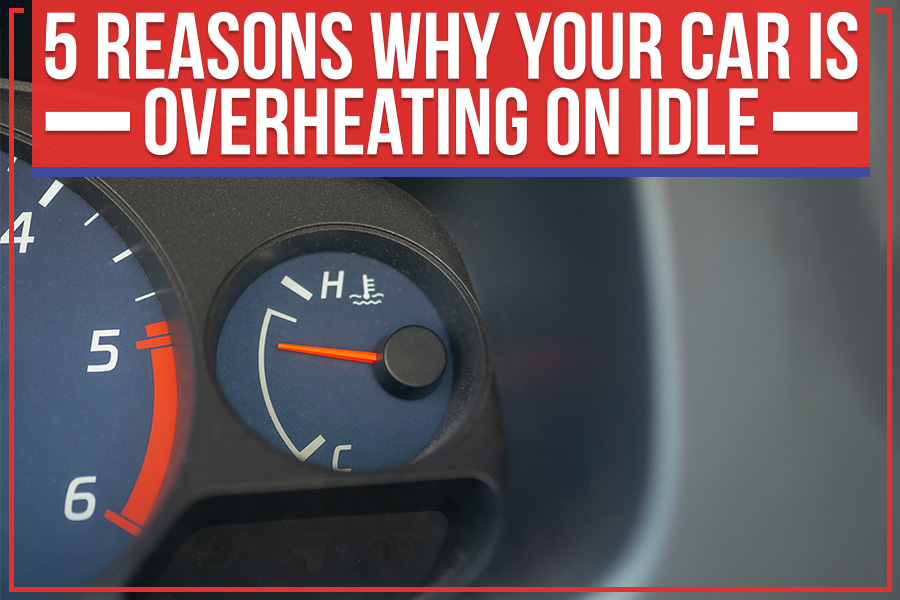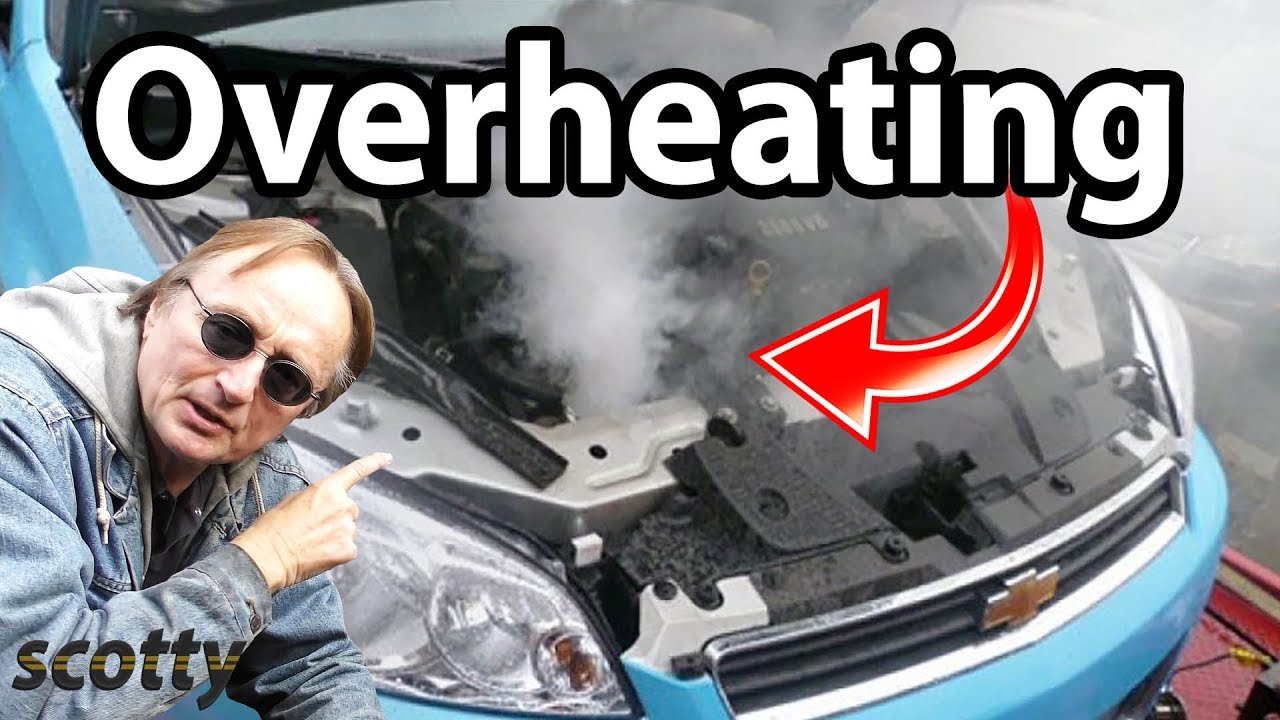Your car may be overheating due to a malfunctioning cooling system or low coolant levels, leading to the engine getting too hot and potentially causing damage. Additionally, a faulty thermostat, radiator issues, or a broken water pump can also contribute to overheating problems.
It is crucial to address these issues promptly to prevent further damage to your vehicle and ensure its optimal performance. By understanding the causes of car overheating, you can take appropriate measures to resolve the problem and maintain a safe driving experience.
Understanding Car Overheating
Car overheating is a common problem that can lead to severe engine damage if not addressed promptly. Recognizing the signs of an overheating car is crucial for preventing more significant issues. One of the most noticeable signs is the temperature gauge rising towards the “H” or red zone. Additionally, steam coming from the engine or a strong smell of coolant may indicate a problem. Other symptoms include reduced performance, loss of power, or strange noises coming from the engine.
Addressing car overheating is of utmost importance to prevent further damage. Ignoring the issue can result in blown gaskets, damage to the radiator or water pump, or even a cracked engine block. Regular maintenance, such as checking coolant levels and inspecting hoses for leaks or blockages, can help prevent overheating. In case of overheating, pull over safely and turn off the engine to allow it to cool down. Avoid removing the radiator cap while the engine is still hot to prevent injuries from escaping steam.

Credit: www.feldmanwoodhaven.com
Coolant System Issues
Insufficient Coolant Levels: One of the common reasons for a car overheating is due to insufficient coolant levels in the coolant system. Coolant, also known as antifreeze, is responsible for regulating the temperature of the engine and preventing it from overheating. If the coolant levels are low, it can result in the engine not being properly cooled and can lead to overheating.
Malfunctioning Thermostat: Another potential cause of an overheating car is a malfunctioning thermostat. The thermostat is responsible for regulating the flow of coolant through the engine. If the thermostat is stuck in the closed position, it can prevent the coolant from flowing and cause the engine to overheat.
Radiator Problems: Issues with the radiator can also lead to car overheating. The radiator is responsible for dissipating heat from the coolant. If the radiator is leaking or clogged, it can result in insufficient heat dissipation and cause the engine to overheat.
Engine Problems
When it comes to car overheating, engine problems are often to blame. One common culprit is a faulty water pump. This vital component circulates coolant throughout the engine, and if it malfunctions, the engine may not receive proper cooling, leading to overheating. Additionally, a damaged radiator fan can also contribute to overheating. The radiator fan helps to dissipate heat from the radiator, and if it is not functioning correctly, the engine can become too hot. Another potential issue is blocked coolant hoses. These hoses carry coolant between the engine and the radiator, and if they become clogged or restricted, coolant flow may be limited, causing overheating.
External Factors
There are several external factors that can contribute to your car overheating. One such factor is extreme weather conditions. Whether you’re driving in scorching hot temperatures or freezing cold weather, it can put a strain on your car’s cooling system, causing it to overheat.
Improper maintenance habits can also play a role in your car overheating. Failing to regularly check and replace your coolant, radiator hoses, and water pump can lead to cooling system issues, resulting in overheating.
Another potential cause of overheating is carrying a heavy load or towing. When your car is weighed down with extra weight or pulling a trailer, it puts additional strain on the engine and cooling system, making it more susceptible to overheating.
Importance Of Regular Maintenance
Routine Cooling System Checks: Regular maintenance plays a crucial role in keeping your car’s cooling system in optimal condition, preventing overheating issues. It is essential to have a professional mechanic conduct routine checks on your cooling system. They will inspect the radiator, hoses, thermostat, and water pump for any leaks, blockages, or damage. These inspections can help identify potential issues early on, avoiding costly repairs down the line.
Flushing and Replacing Coolant: Another critical maintenance task is flushing and replacing the coolant at recommended intervals. Over time, coolant can become contaminated with debris and lose its effectiveness, resulting in poor heat transfer. Flushing the system and replacing the coolant ensures that it can effectively absorb and dissipate heat, maintaining the engine’s temperature within the desired range.
Maintenance Tips for Preventing Overheating: In addition to regular checks and coolant replacements, there are several maintenance tips you can follow to prevent overheating. These include monitoring your coolant levels regularly, checking for any signs of coolant leaks, ensuring proper airflow to the radiator, and avoiding driving in high temperatures for extended periods.
Professional Help And Solutions
Car overheating is a common issue that can cause serious damage if not addressed promptly. Diagnosing the cause of the overheating is crucial to finding an effective solution. In most cases, it’s best to hire a qualified mechanic who specializes in car cooling systems. Their expertise and diagnostic tools can accurately pinpoint the problem and ensure it is fixed correctly.
When it comes to preventing overheating in the future, there are some tips to keep in mind. Regular maintenance is key. Make sure to regularly check and top up coolant levels, inspect the radiator for any leaks or damage, and ensure the thermostat is functioning properly. Additionally, avoid excessive idling and heavy loads on your engine, as these can contribute to overheating.
By taking these measures and addressing any overheating issues promptly, you can keep your car running smoothly and avoid costly repairs down the road.
Conclusion
To sum up, understanding the reasons behind car overheating is crucial for maintaining vehicle health. From low coolant levels to a malfunctioning radiator, various factors can contribute to overheating. Regular maintenance, such as checking coolant levels and inspecting the radiator, can prevent this issue.
When a car overheats, it can lead to expensive repairs and potentially dangerous situations. By addressing the problem promptly and seeking professional help when needed, you can keep your car running smoothly and avoid overheating mishaps on the road.

